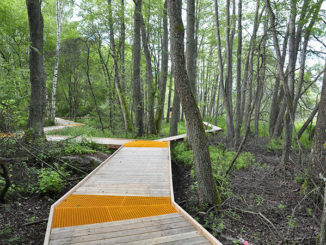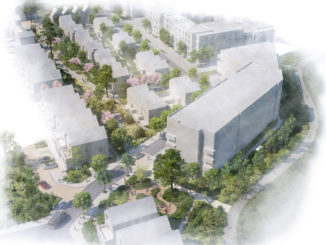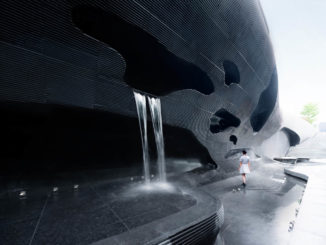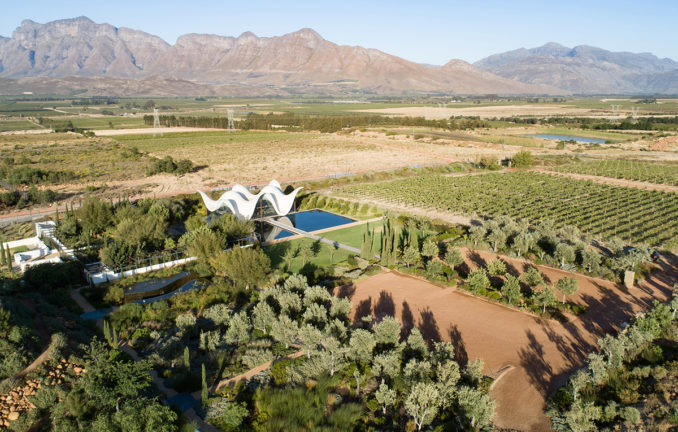
Bosjes is a boutique wine farm in the foothills of majestic mountains near Worcester, Western Cape, South Africa. The climate is harsh and hot in summer with rainy winters. The farm is blessed with ample water. It is this geographically unique water source that inspired much of the landscape design.
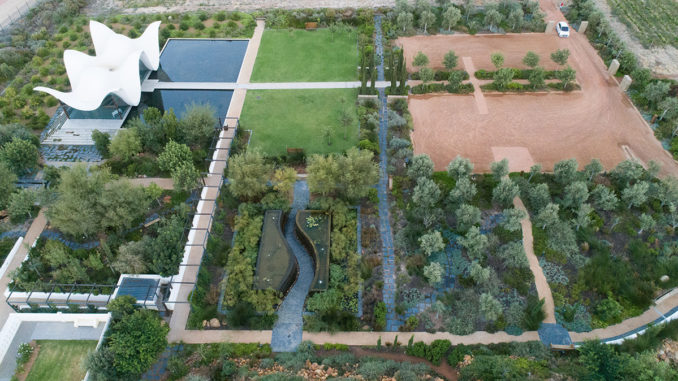
The farm was run down, not ideally located (2 hour drive from Cape Town) and therefore was not attracting many visitors.
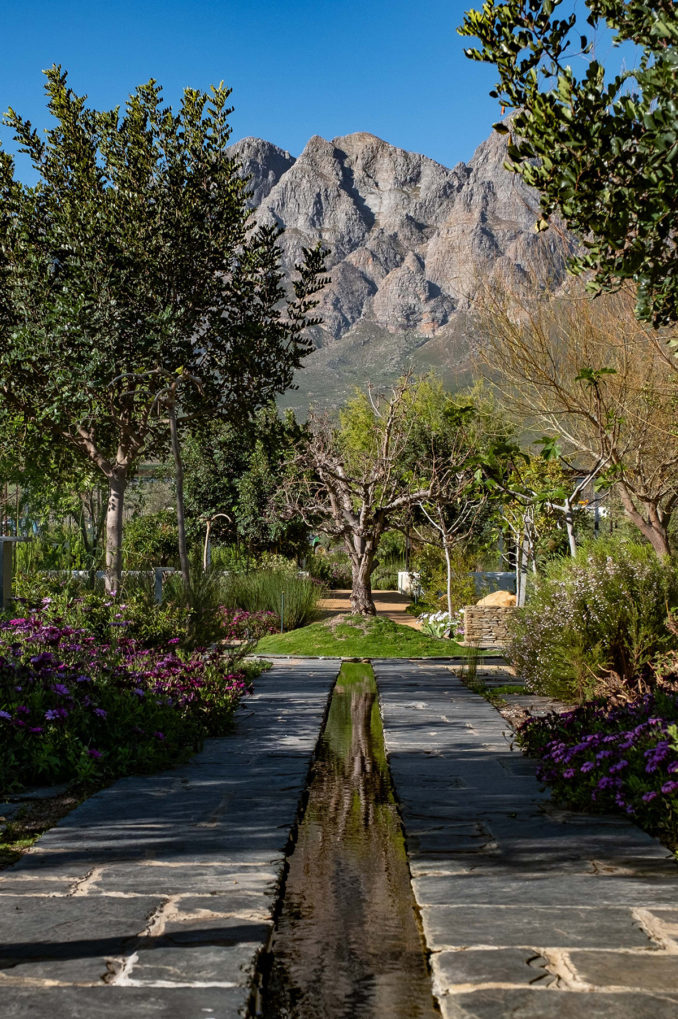
The brief from the client was that the 3.4-hectare garden should in itself become a drawcard for visitors, an oasis with water as a strong theme. The gardens were to anchor the iconic Chapel and had to subtly depict events from the Bible. The garden also specifically had to be disabled-friendly throughout the entire site.
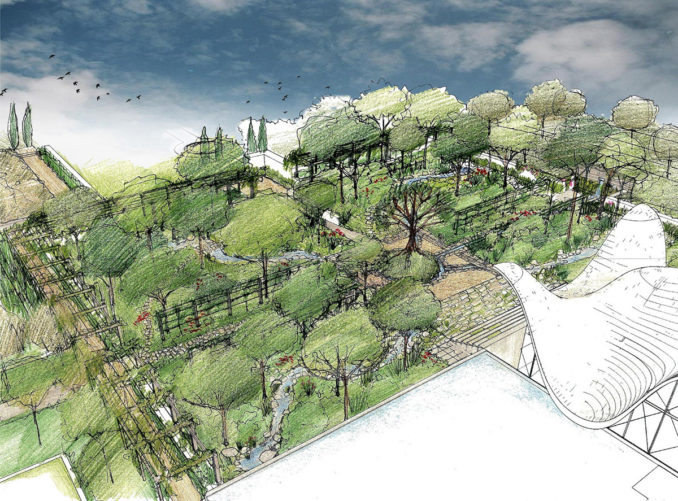
Biblical references used, were the Garden of Eden (“Lush Garden”), Parting of the Red Sea (“Water Garden”), Mount Sinai (“Dry Mountain”) and the Hanging Gardens of Babylon (“Oasis”).
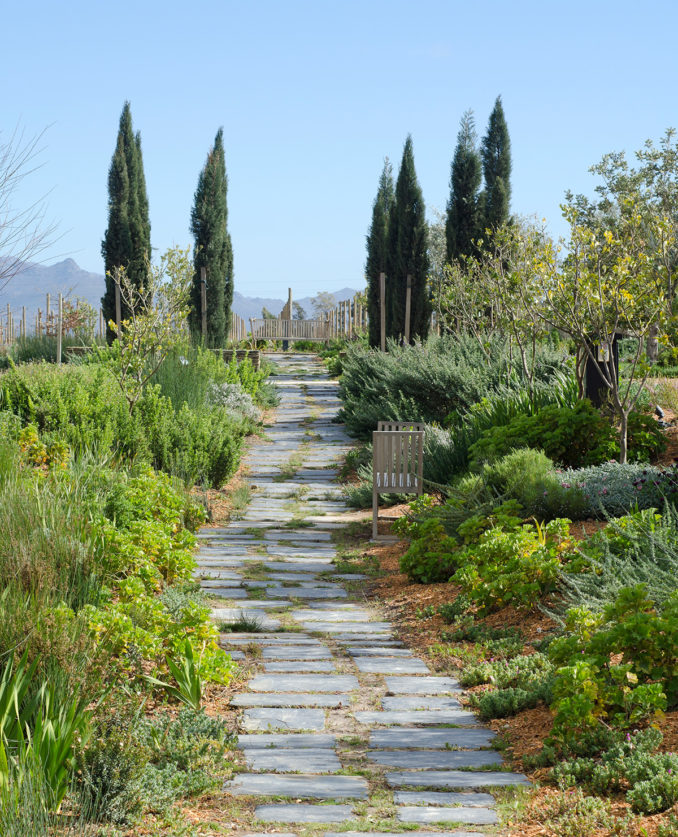
The Landscape Architects designed the various interconnected and distinctive landscape “rooms” within the overall garden, each to evoke varying emotions in the user whilst exploring, experiencing and contemplating. A stroll through the garden is likely to touch even the most incongruous of a visitor.
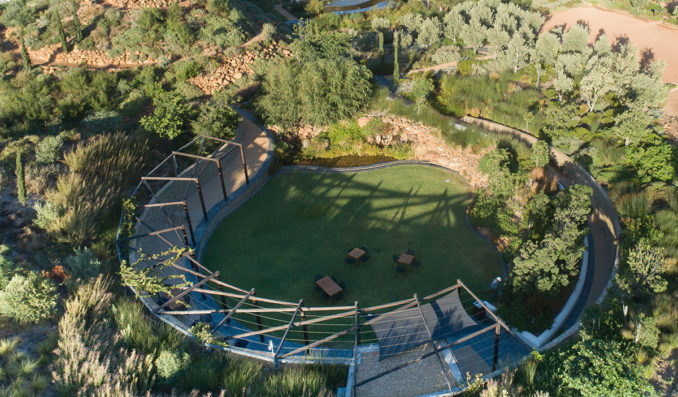
The Chapel connects to an existing historic graveyard and via a strong axis through vineyards to the original Bosjes Manor House.
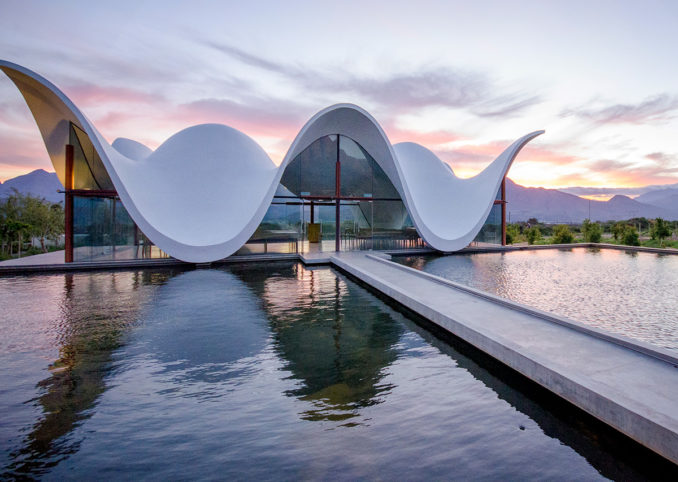
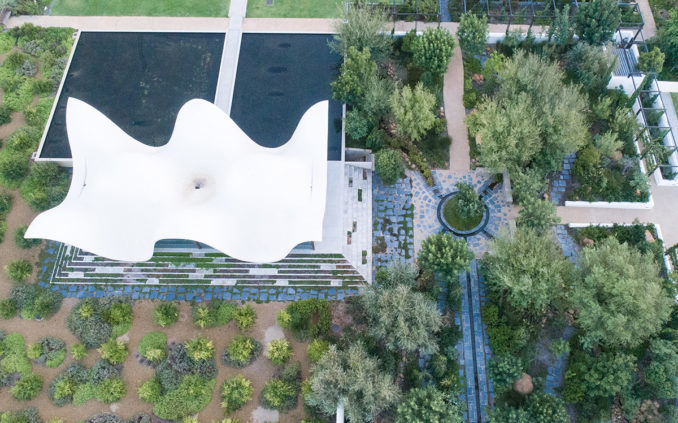
Water, which is sourced on-site and re-used, is purposed for reflection, evaporative cooling effect and as a sacred linking element between experiences. An expansive pool reflects the iconic Chapel and four streams link to the central apple tree in the “Lush Garden”. The wet vertical walls of the “Water Garden” is followed by a meditative spiral walk up the high man-made “Dry Mountain” leading one to 360-degree views of the maintains and valley in the distance, with the visitors’ experience terminating in the sunken green “Oasis” tea garden with vegetated dripping stonework.
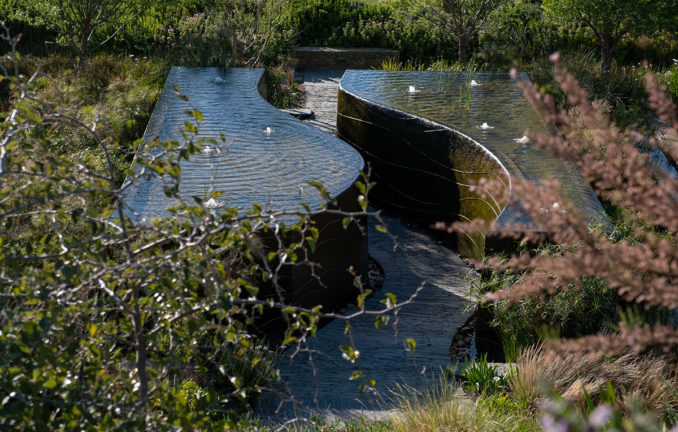
An on-site plant search and rescue operation was conducted prior to the commencement of construction with several plant species, endemic to the area, being propagated and re-introduced as part of the overall plant palette. Biblical plants had to be researched and specially propagated for the project. A total of 540 trees were pre-booked and maintained by the nursery until the site was ready for the commencement of planting. 126 mature fruit-bearing Olive trees were planted, adding to the harvest of olives for the production of oil for use and sale at the farm. Other fruit-bearing trees include figs, almonds, honey locusts, citrus and pomegranates. These trees, along with other tree species (trees mentioned in biblical text) such as willows, cypresses, thorn trees and many indigenous trees species assist with ameliorating the harsh climate.
The existing topography was manipulated through extensive cutting and filling to create interest in the otherwise flat landscape. A portion of the material excavated to create a basement level under the Chapel to house services such as the extensive pump and filtration systems for all water elements was used to create the “Dry Mountain”, rather than removing the material from the site at great cost.
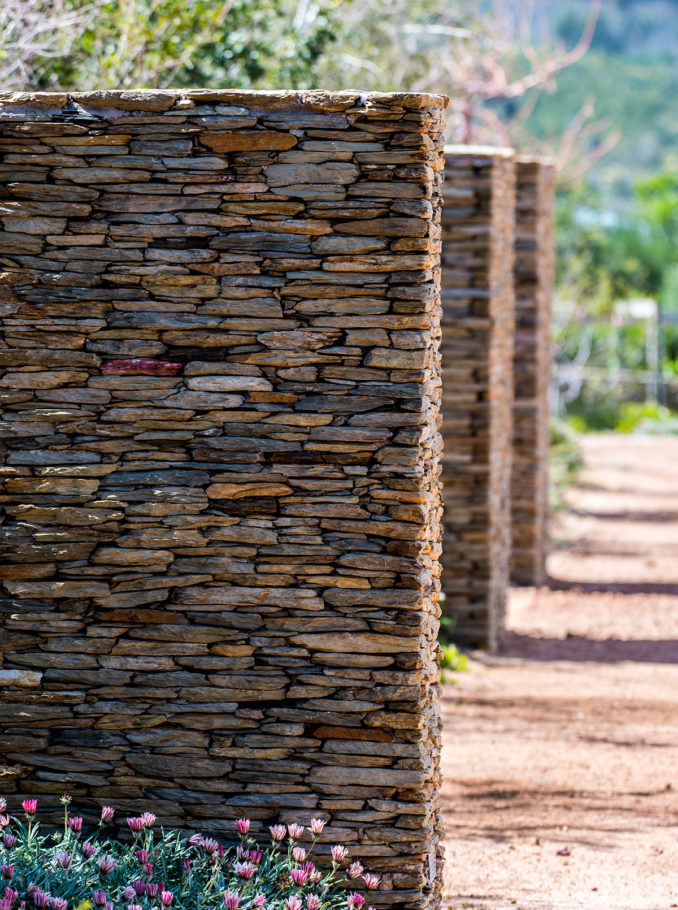
Hard landscape surfaces have clean uncluttered lines using natural and locally sourced materials in the classic tradition of Cape rural place-making and include white-washed walls combined with blue slate and packed Overberg stone that were specifically sourced to match the colours of the surrounding mountain backdrop.
Locally manufactured discreet / integrated lighting creates an added dimension to the nocturnal experience of the landscape.
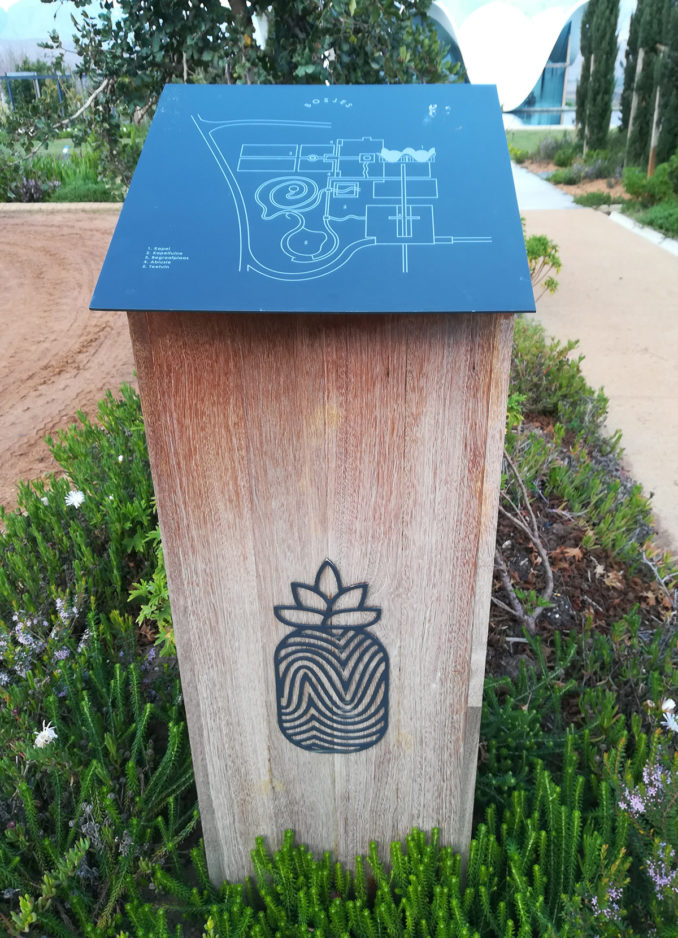
A bespoke set of landscape elements and signage was purpose-designed for the development by the Landscape Architects, using natural timber and anodised aluminium.
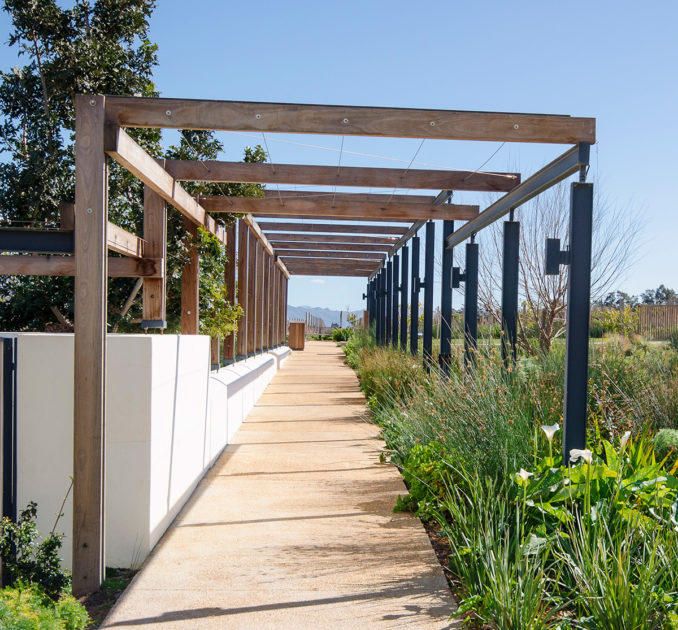
All plants, materials & labour had to be locally sourced, which was also a requirement from the Client.
Disabled users are especially catered for through meaningful design interventions to include, wheelchair access throughout, wide pathways with easily trafficable surfaces, the incorporation of varying textures for a tactile experience, scented planting and informative braille plaques.
Bosjes now hosts numerous weddings and visitors with the guest house and restaurant being fully booked.
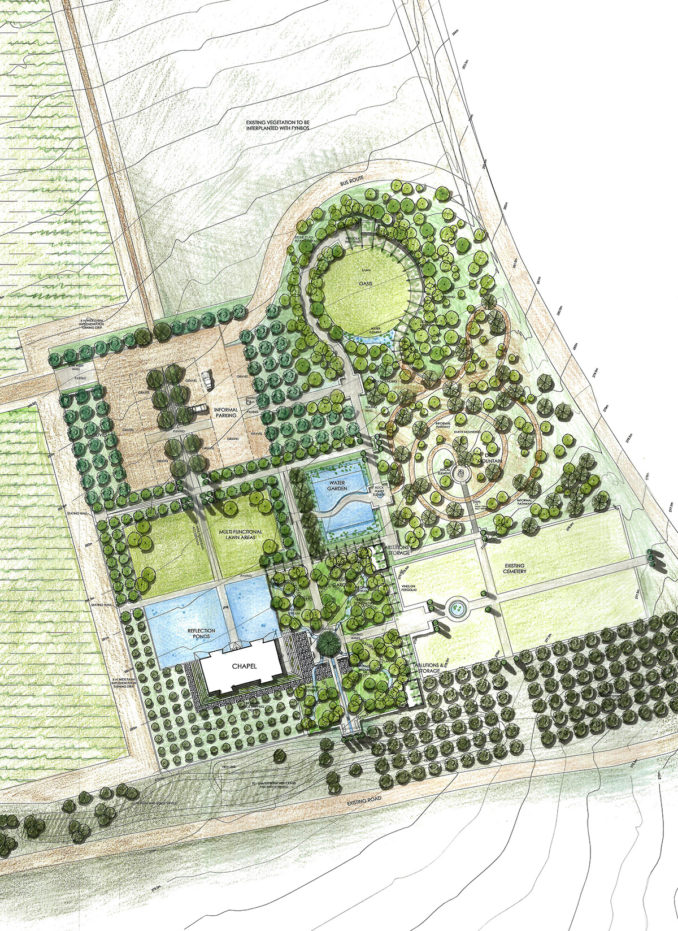
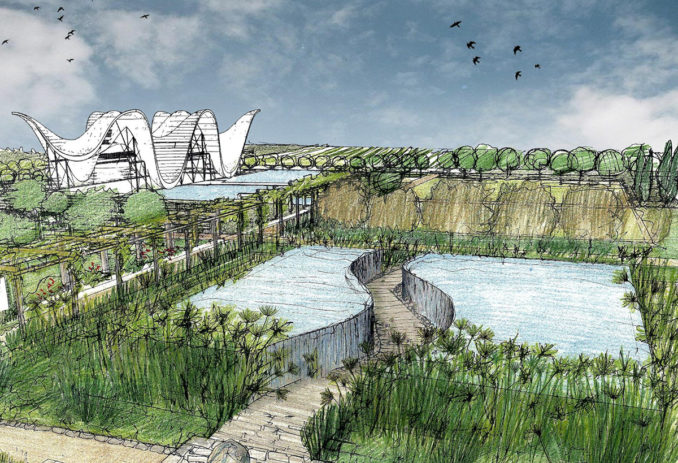
Bosjes | cndv landscape architects
Professional Team Credits:
- Landscape Architect: cndv landscape architects
- Architect – United Kingdom: Steyn Studio
- Architect – South Africa (Technical): TV3 Architects & Planners
- Structural Engineer: Henry Fagan & Partners
- Civil Engineers: BVi Consulting Engineers
- Mechanical & Electrical Engineers: Solution Station
- Quantity Surveyor: De Leeuw
- Heritage Consultants: Graham Jacobs, Elzet Albertyn & Lize Malan
Image Credits | as captioned above
Text Credit | cndv landscape architects

